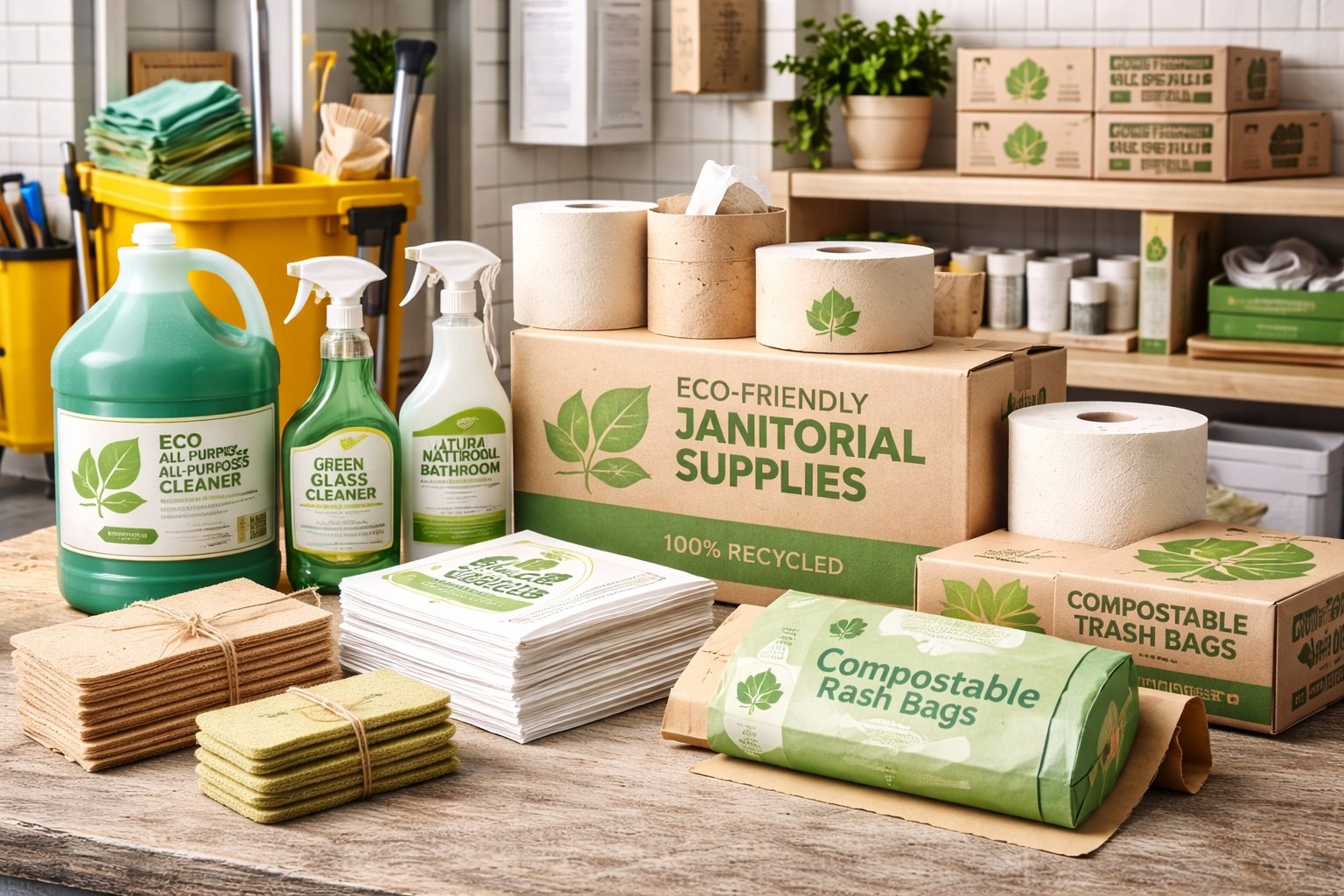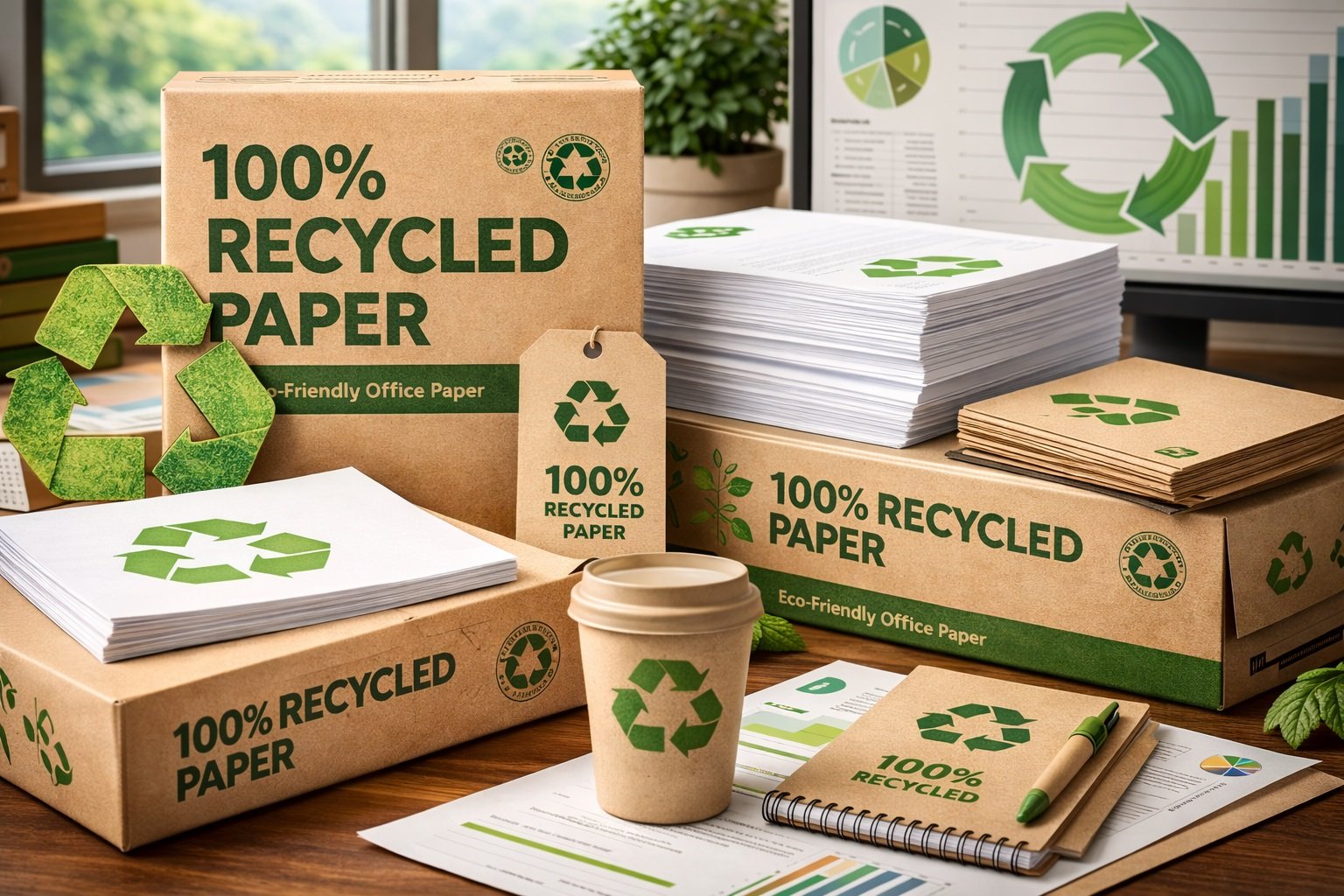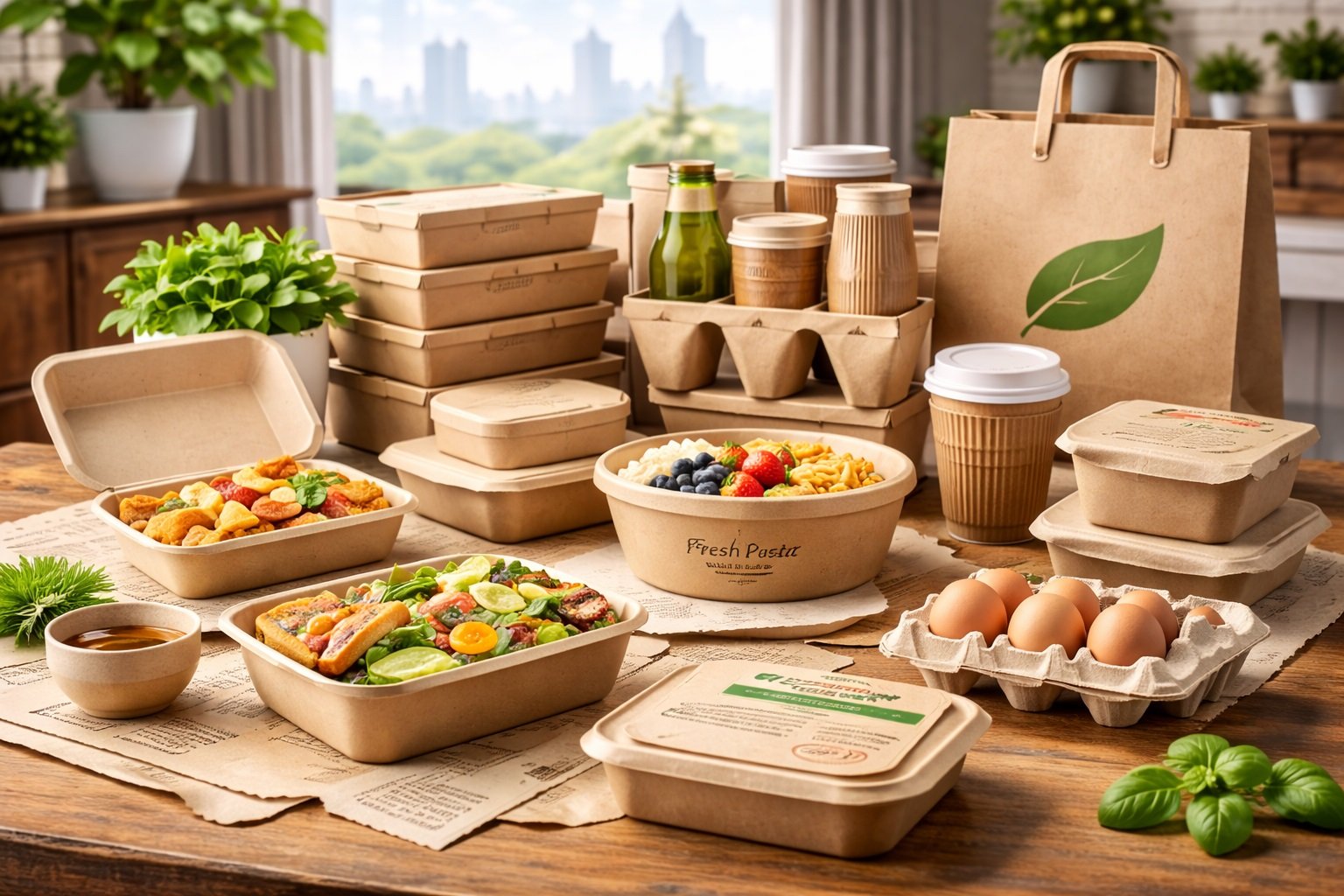Difference between recycled and non-recycled paper for janitorial use
Janitorial paper is a critical component in maintaining cleanliness and hygiene across various industries, from office buildings to healthcare facilities. While often overlooked, the type of janitorial paper you choose—recycled or non-recycled—can have significant implications for the environment, cost, and overall sustainability. This blog examines the key distinctions between recycled and non-recycled janitorial paper, looking at the ecologically friendly options for janitorial paper, the value of recycled paper for commercial cleaning, and what non-recycled paper means to the environment.
Eco-Friendly Janitorial Paper Options
Eco-friendly janitorial paper choices are made in a way to reduce the footprint on the environment while maintaining high performance. Recycled paper products are mostly at the front of these choices, typically consisting of post-consumer or pre-consumer waste materials. Since paper waste can be diverted away from landfills and also reduce the dependence on virgin pulp, recycled janitorial paper helps save natural resources and energy. FSC, EPA Guidelines, and Green Seal are only a few certifications that ensure that such products conform to the very high environmental and sustainability standards of production, ensuring companies seeking to lessen their ecological footprint have a more reliable choice.
Benefits of Recycled Paper for Commercial Cleaning
There are various benefits that recycled janitorial paper has for commercial cleaning operations. For one, it helps in conserving the environment by lessening deforestation while minimizing energy-intensive processes related to virgin paper production. Modern day-products made of recycled paper are engineered to be just as effective as non-recycled paper products, providing strength and absorbency for different cleaning operations. In addition, companies that use recycled paper find it fits into the corporate social responsibility agenda and boosts their reputation among environmentally conscious consumers. Cost savings can also be realized, especially when purchased in bulk, making recycled paper a practical and sustainable option for commercial settings.
Sustainability in Janitorial Paper Products
Sustainability has become a priority in the janitorial supply industry, and janitorial paper products play a key role in achieving this goal. The production of recycled paper requires significantly less water, energy, and chemical processing compared to virgin paper. By using recycled paper, businesses contribute to waste reduction and lower greenhouse gas emissions, as paper that would otherwise end up in landfills is repurposed into functional products. Many companies are adopting sustainable janitorial paper products that require building certification but also help reduce the carbon footprint and appeal to stakeholders’ conscious approach toward a green environment. Sustainability in janitorial paper is no trend. It’s a vital step toward that greener future.
Environmental Impact of Non-Recycled Paper
Fresh wood pulp is used for non-recycled, or virgin paper. Non-recycled looks fresh and clean, yet its production at a significant cost to the environment. Manufacturing such paper contributes to deforestation which affects ecosystems and reduces the sequestration abilities of the Earth. Furthermore, virgin paper utilizes more energy and water than recycled paper. Chemicals used in bleaching and processing can be toxic to the environment surrounding the production site, making it another site of ecological degradation. In addition, non-recycled paper waste is significant in volume, often ending up in landfills, where it is a source of methane, an extremely potent greenhouse gas. While virgin paper has its place in certain applications, its use at large scale raises significant sustainability concerns.
Cost Comparison: Recycled vs. Virgin Paper Products
A common misconception is that recycled janitorial paper is significantly more expensive than virgin paper. However, advances in recycling technology and increased demand for sustainable products have narrowed the cost gap. Recycled paper may have a slightly higher upfront cost in some cases, but it often results in long-term savings through reduced disposal costs and potential tax incentives for adopting sustainable practices. On the other hand, virgin paper, while sometimes cheaper initially, incurs hidden environmental costs that can affect businesses in the form of regulatory penalties or in terms of their reputation. If taken into account are the direct costs and environmental factors, then recycling paper usually appears to be cheaper and more eco-friendly.
Correct Janitorial Paper Selection
Choosing the appropriate janitorial paper requires balancing the considerations of environmental responsibility, performance need, and budget. Businesses seeking to maintain the highest levels of sustainability have been looking to recycle paper products. They are designed to meet both ecological requirements and reliable performance expectations, and recent advances in this product category now offer excellent alternatives for most cleaning applications.
For a reliable janitorial paper provider, The American Eagle Paper Company is an excellent provider that offers a whole range of options starting from traditional to green solutions. Strongly dedicated to sustainability, they present their consumers with products that will ensure the most preferred high-quality recycled paper in accordance with the requirements of environmental protection. This helps businesses to take good care of the environment and serve with the highest cleanliness standards.






